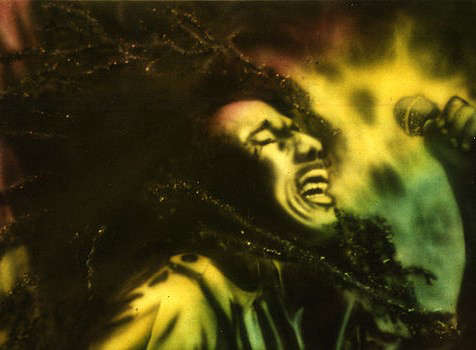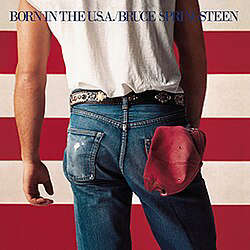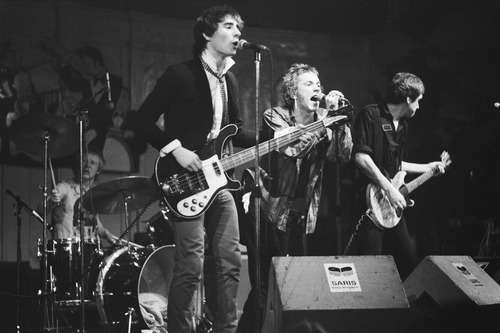
Exodus took reggae global as was crowned Album of the Century.
On June 3, 1977, Bob Marley released Exodus, the album that would not only define the next chapter of his life but also help push reggae into the global spotlight. With its blend of spiritual themes, political fire, and irresistible grooves, Exodus marked a turning point for Marley — and for the world’s understanding of Jamaican music.
The album took shape in the midst of violence. In December 1976, Bob Marley survived a shooting in Kingston just days before he was scheduled to perform at a peace concert meant to calm Jamaica’s political unrest. Despite his injuries, he took the stage. Not long after, Marley left Jamaica and ended up in London, where he went on to record Exodus.
In many ways, Exodus reflects the tension and exile of that period. Side one of the album is steeped in political urgency, opening with the driving “Natural Mystic,” and followed by protest anthems like “So Much Things to Say,” “Guiltiness,” and the unforgettable title track, which became a rallying cry for those fleeing political oppression and colonial legacy. “Movement of Jah people,” Marley chants again and again in “Exodus,” evoking both the biblical flight from Egypt and a metaphor for liberation across Africa and the Caribbean.
The second half of the record shifts tone, offering a string of Marley’s most enduring love songs and spiritual reflections. “Jamming,” “Waiting in Vain,” “Turn Your Lights Down Low,” and “Three Little Birds” make up one of the most celebrated B-sides in pop music. These tracks, known for their optimism and soul, remain among Marley’s most cherished songs. It’s fitting that Exodus was crowned Album of the Century by Time magazine in 1999.
What made Exodus different was its reach. This was the album that truly broke Marley into the international mainstream. It stayed on the UK charts for 56 consecutive weeks and earned gold status in the U.S. In Jamaica and across the African diaspora, it was already sacred. But with Exodus, Marley crossed over, becoming a global symbol of resistance, peace, and pride.
The album’s blend of roots reggae, funk, and even touches of rock and soul gave it a broader appeal, without sacrificing Marley’s message. Critics at the time praised its layered sound and thematic ambition. Writing in Rolling Stone, Robert Palmer called it “Marley's finest album to date.”
But Exodus is more than a landmark in Marley’s discography — it’s a cultural document. It captures a man in exile, processing violence, betrayal, faith, and love, while staying grounded in his Rastafarian beliefs. It’s also a reminder of music’s power to transcend borders.
The legacy of Exodus and Marley’s life has found new relevance with the release of the 2024 biopic Bob Marley: One Love. The film, starring Kingsley Ben-Adir as Marley and produced with the support of the Marley family, focuses heavily on the period leading up to and following the release of Exodus. It dramatizes the 1976 shooting, Marley’s exile in London, and the creative process behind the album, bringing a new generation into contact with both his music and message. The film has sparked renewed interest in his discography, pushing Exodus and other Marley classics back onto streaming charts nearly five decades after their release.
Bob Marley passed away in 1981, but his words and rhythms live on. Forty-eight years later, Exodus still sounds as vital and necessary as ever.
Sources:
- Time Magazine
- Rolling Stone
- Chris Salewicz, Bob Marley: The Untold Story
- Vivien Goldman, The Book of Exodus: The Making and Meaning of Bob Marley and the Wailers' Album of the Century
- BBC Archives
Bob Marley Live - Painting by Steve Brogdon1992



 On This Day: Jurors see the gun Phil Spector used to kill Lana Clarkson
On This Day: Jurors see the gun Phil Spector used to kill Lana Clarkson
 40 Years of ‘Born in the U.S.A.’: Bruce Springsteen’s Anthem Turns 40 Amid Renewed Political Firestorm
40 Years of ‘Born in the U.S.A.’: Bruce Springsteen’s Anthem Turns 40 Amid Renewed Political Firestorm
 New Music Monday: From Gritty Blues to Meditative Folk, Five New Tracks Worth a Spin
New Music Monday: From Gritty Blues to Meditative Folk, Five New Tracks Worth a Spin
 John Fogerty Reclaims His Creedence Legacy
John Fogerty Reclaims His Creedence Legacy
 On This Day: Sex Pistols Shake the Monarchy
On This Day: Sex Pistols Shake the Monarchy












Comments
Add a comment